'Called Out Believers' tagged sermons
Learn about Passover, the two Firstfruit harvests, and how to count the Omer up to Shavu’ot
This week the Torah Parashah and Haftarah both focus on the Priesthood… Teaching For Shabbat of March 30th, 2024 (Donate and support this Ministry by clicking here) Torah: Leviticus 6:1–8:36Haftarah: Jeremiah 7:21-28; 9:22-23 Tzav (צַו) — Hebrew for “command,” the sixth word in the parsha) is the 25th weekly Torah portion in the annual cycle of Torah…
Teaching For Shabbat of March 23th, 2024(Donate and support this Ministry by clicking here) Torah: Leviticus 1:1–5:26Haftarah: Isaiah 43:21-44:23 Vayikra (וַיִּקְרָא)— Hebrew for “and He called,” the first word in the parsha) is the 24th weekly Torah portion in the annual cycle of Torah readings and the original name for the Book of Leviticus. The parsha lays out the laws…
This week we have a double Torah Parsha… Vayakhel and Pekudei. Vayakhel (וַיַּקְהֵל ) meaning “and he assembled,” and Pekudei (פְקוּדֵי ) meaning “amouts of,”…
In this study of Tetzaveh we see further symbolic details within the Mikdash (Tabernacle) that reveals the plan for man’s sanctification as well as the hidden message in the beaten olives to produce the olive oil for the menorah and the armor of God seen in the Garments of the High-Priest used to intercede for Israel and draw near to His glory!
In this study from Torah parashah Terumah we see the beautiful symbolism within the Mikdash (Tabernacle) that reveals Yah’s Plan of Salvation and shows us how God desires to “dwell” within us and what Selfless love looks like when Divinity “dwells” in Humanity!
Torah parashah Mishpatim covers Exodus 21:1 – 24:18 and goes over 53 Mishpatim or “judgements” in how to be accountable to our fellow man as well as the laws of compensation and restitution when one does something wrong or negligent. In this study we focus on how God intends for us to grow spiritually further than the “basic” instruction in Torah on how to “not do wrong things” to showing selfless love to God and our fellow man on a higher spiritual application in thought, word and deed!
Torah parashah Yitro covers Exodus 18:1 – 20:23 and tells of Yitro’s (Jethro’s) organizational counsel to Moses and God’s revelation of the Ten Commandments to the Israelites at Mount Sinai. In this study Rabbi Isaac focuses on the importance of being grafted into Israel like Yitro and the mixed multitude that came out of Egypt with Israel and then received the blessing of being apart of God’s betrothal at Sinai and receiving the Ketubah revealing how to love God and our fellow man!
Learn in Torah parashah Bo about how God allows us to experience the negative cause and effect destruction of holding onto our stubbornness or we can choose to be under the “blood covering of the Lamb” and be blessed with protection, health and prosperity! This parashah tells of the last three plagues on Egypt, instruction on how to observe the New Moon of Aviv in the Spring as the first month of the religious calendar and instruction on how to observe the first Passover.
Learn in Torah parashah Va’eira more about Elohim’s further revelation of Himself and the principles behind the plagues that each deal with a different idol in the lives of the Egyptians, and find out how to apply that to our own lives today! Find prophetic correlations with how the Parashah ends with the 7th plague of hail and see how this hints at the 7th and final plague in the book of Revelation!











